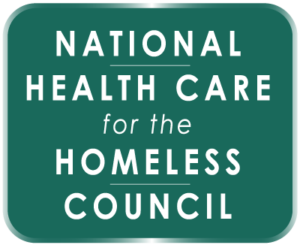Bobby Watts is Director of the NIMRC Initiative and CEO of the National Health Care for the Homeless Council.
NIMRC – Why NIMRC Now?
I am very excited to be part of the establishment of the National Institute for Medical Respite Care (NIMRC) as a special initiative of the National Health Care for the Homeless Council. The purpose of NIMRC is to improve, promote, and expand the practice of Medical Respite Care (MRC) throughout the country. To accomplish these goals, we will foster and promote strategic partnerships at the national and local level and will provide state-of-the-art Training and Technical Assistance, customized consultative services, research, and policy analysis and advocacy. I’d like to address three questions in my first entry for Leading Voices:
- Why Expand Medical Respite Care?
- Why Us?
- and Why Now?
Why Expand Medical Respite Care?
Medical Respite Care (also known as Recuperative Care) is for people without homes that no longer have a clinical reason to stay in a hospital, but are too sick to safely be discharged to a shelter, a friend’s couch, or the streets. Medical Respite Care is short-term residential care that allows someone to heal safely while meeting their health and other needs. Medical Respite Care (MRC) saves lives, improves health, helps health systems and helps shelter systems. The demand for MRC in communities is far greater than the number of existing programs.
Why the National Health Care for the Homeless Council?
For 30 years, the National Health Care for the Homeless Council (“the Council”) has been the premier national organization working at the nexus of health care and homelessness. The Council houses and supports the Respite Care Providers Network (RCPN), the largest body of Medical Respite programs and individuals. There are about 100 Medical Respite programs and more than 1500 individuals in our RCPN community, and they will continue to be the source of practical expertise and best practices in delivering MRC services. The strength of the Council is that all of our work is powered by those on the front lines – those with the lived expertise of homelessness and have received MRC services, as well as the clinicians and administrators operating MRC programs. NIMRC will build on the vast repository of knowledge and resources and tailor them for new audiences beyond health centers.
Why Now?
The COVID pandemic has made many communities and health systems aware of the value and importance of addressing the health needs of people without homes. In response to the pandemic, many HCH and MRC programs stepped into the breach and provided services at Isolation and Quarantine sites, bringing the values, principles, and practices of Medical Respite to these programs. As a result, the requests to help establish MRC services have increased dramatically — from new audiences beyond the Council’s usual base of HCH programs. Establishing NIMRC now will help us meet the need for new MRC programs and Training and Technical Assistance as quickly as possible.
I look forward to expanding more on these points in forthcoming Leading Voices.

